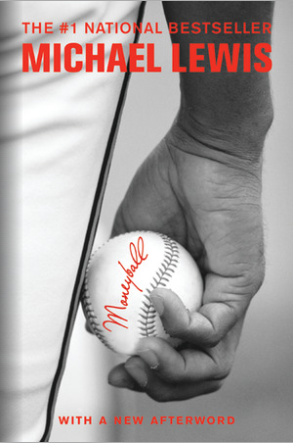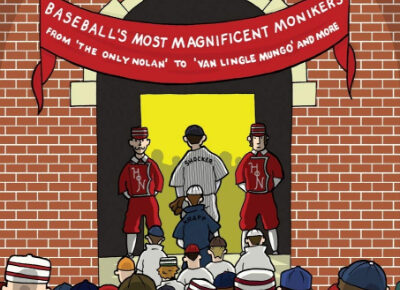It’s ironic that someone who spends a good deal of his time writing from a sabermetrics point of view hadn’t read Moneyball until today, but I am who I am I suppose. My lack of modern baseball culture aside, I was interested in Moneyball. However, as the pages went by I became more interested, only not quite in the way I think the book wanted me to be.
At a certain point, I couldn’t quite get past the idea that baseball players don’t matter, that they are nothing more than pieces to be moved around at will by someone with massive anger issues, which are simply written off as “Billy being Billy.”I think Michael Lewis set out to create a tragic figure in Billy Beane, someone who was stalled at every turn by his own inefficiencies. Yet, he never quite got there because of how willing he was to excuse Billy’s lack of humanity, empathy, or social aptitude. There are two main thrusts to Moneyball, the first being Billy Beane as the underappreciated baseball genius. This thrust glosses over the Oakland Athletics’ choice to be poor. They had the money to contend with any team in Major League Baseball, they simply chose not to spend their money, because, well, capitalism.
The above seamlessly slides into the second thrust of Lewis’ book, that MLB is out of control, players are overpaid, and the endeavor needs someone who can come in and be ruthlessly efficient. That person is, by proxy, Billy, yet I couldn’t help but get the feeling that Lewis misses the forest for the trees. There’s no better encapsulation of this than the chapter where the A’s win their 20th straight game. Lewis uses this to cement the idea that Billy is off his game when he allows the emotion of the game to get to him. It teeters on being great literature, it almost paints Billy as this unrepentant monster who cannot understand that the emotion of the game is what people, and Billy himself, care about. The rest of Moneyball, and even said chapter, flies in the face of that take, as that isn’t the takeaway. Rather, it’s that everyone has it wrong and Billy’s meticulous and emotionally empty take on the game is just what the game needs.
The keyword in that last paragraph is game. Baseball is, surprisingly, a game. It’s a game before it is a business and before it is a legitimate sporting contest. None of that is to take away from the joy that one can get from dissecting the game from a sabermetric lens. What I would caution, and what I believe Moneyball misses entirely, is that even that approach only comes about because of a deep-rooted love of the game. If you remove that love and treat baseball as numbers and numbers alone then you lose the emotional component and ultimately the draw to watching baseball entirely.
Bill James loved baseball, that’s why he wrote about it as he did. Heck, from what I can gather Billy Beane loved baseball, he just hated how much it didn’t love him back. Instead, Lewis presents a cold individual who doesn’t have any emotional depth, let alone the capacity to feel emotion toward a game. That’s unfortunate because Lewis can construct a sentence with the best of them. As an exercise in mechanical writing, Moneyball is a very good and easy read. As a story, Moneyball falls well short of its mark, though it does end up being interesting in a “stare at the monstrosity” sort of way.
Lead photo courtesy of W.W. Norton & Company




